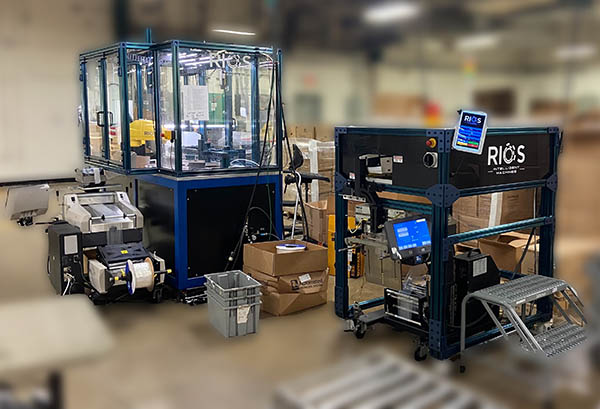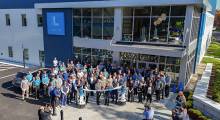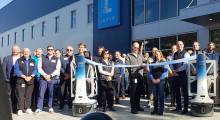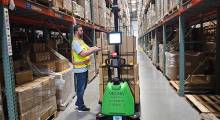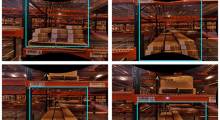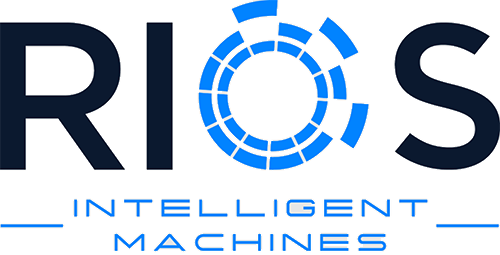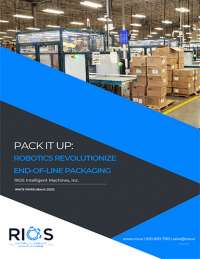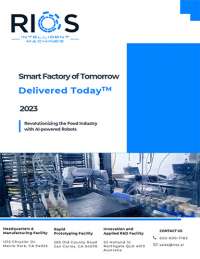As manufacturers and supply chains grapple with disruptions, smarter and more dexterous robots promise to help handle multiple applications, freeing scarce workers for more value-added tasks. RIOS Intelligent Machines Inc. today announced that it has raised $28 million in Series A equity funding and debt financing.
“Bedrock sectors of our economy are crippled by a labor shortage problem that COVID turned into a full-blown crisis,” said Dr. Bernard Casse, CEO of RIOS. “Today, most factories in the world are labor-intensive, and with millions of jobs unfilled, manufacturers are unable to keep up with skyrocketing consumer demand – and they are in extreme pain.”
“We have the cure to this trillion-dollar opportunity,” he added. “We’re re-industrializing America with best-in-class American technology, while upskilling our American workforce in the process and enabling them to access higher-level and better-paying jobs.”
Founded by former Xerox PARC engineers, RIOS said its full-stack offering includes artificial intelligence and robotic workcells that can integrate with existing workflows in factories and warehouses.
The Menlo Park, Calif.-based company claimed that its software, tactile sensors, haptic intelligence platform, and end-of-arm tooling and food-grade grippers can help transform labor-intensive facilities into “lights-out factories of the future.”
RIOS workcells pioneer RaaS
RIOS said that it “focuses on the last frontier of automation in factories, in which traditional automation breaks down.” It said its systems are designed to have the dexterity, cognitive skills, and autonomy to tackle hard-to-automate picking and sorting tasks in unstructured environments.
The company added that it pioneered the robotics-as-a-service (RaaS) business model, which enables customers to avoid upfront capital commitments in favor of operational expenditures. RIOS said it has signed agreements with more than a dozen customers in the U.S. and Japan, from midsize businesses to large enterprises.
RIOS noted that its robotic workcells are currently deployed in the U.S. in the manufacturing, consumer packaged goods, and food and beverage sectors. It plans to use its new capital to deploy its robotic fleet at scale to both new and existing customers.
Series A recognizes value proposition
RIOS said its latest funding, together with $5 million in venture capital from 2020, raises its total capitalization to $33 million. Main Sequence led the oversubscribed Series A round along with new major investors Yamaha Motor Ventures, Orbit Venture Partners, and Hypertherm Ventures. Existing investors Valley Capital Partners, Morpheus Ventures, and Grit Ventures also participated.
Mike Zimmerman, partner at Main Sequence in Australia, is joining the board of directors of RIOS, and Anish Patel, chief operating officer and managing director at Yamaha Motor Ventures, has joined as a board observer. Main Sequence was set up in 2017 to manage the CSIRO Innovation Fund, founded by the Australian Government and its national science agency.
“RIOS' combination of RaaS business model and adaptable end-to-end robotic workcell platform is the ideal answer to the labor and supply chain challenges facing manufacturers around the globe,” said Zimmerman.
“Main Sequence was attracted to RIOS’ strong market traction, positive customer feedback and world-class team,” he said. “We’re also thrilled that RIOS is strategically tapping into Australia's ecosystem of industry experts, research institutions, and commercial companies to both commercialize innovative robotic technologies and get early access to the Australian market.”
RIOS claimed that its value proposition to its customers include production-grade machines that meet throughput goals and key performance indicators (KPIs). It also said its systems are easy to use, have little downtime, and can be integrated with existing workflows.
In addition, the company said that it can quickly deliver systems and provide leading support, enabling manufacturers of all sizes to scale to meet growing demand.
“We are pleased to see the tremendous growth at RIOS since our initial investment,” said Steve O’Hara, managing partner at Valley Capital Partners and a board member of RIOS. “From Day 1, we were impressed with the RIOS team and believed their data-focused and full-stack technology approach would help differentiate them quickly as the demand for automation services grew.”
Article topics
Email Sign Up



